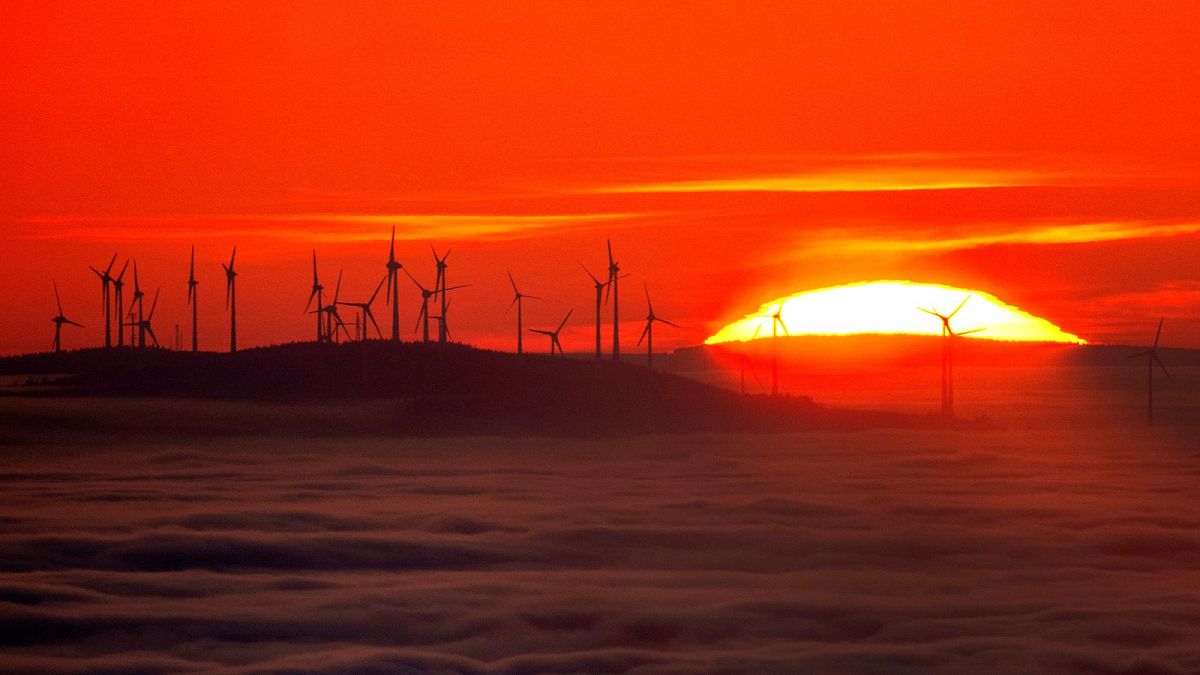Reducing coal usage and making permits easier has helped renewables become “the backbone of the system” in Germany.
Germany’s power mix passed a green milestone in 2024, with renewables making up 59 per cent of electricity generation, according to the latest figures.
That’s up from 56 per cent in 2023, the country’s Bundesnetzagentur (the regulatory Federal Network Agency) reported on Friday.
Onshore wind was the biggest single energy source at 25.9 per cent – despite a comparatively less windy year.
Solar recorded the largest growth thanks to new installations and “an extraordinary amount of sunshine” over summer, the Bundesnetzagentur states.
What’s driving Germany’s renewables growth?
“Germany’s electricity transition is moving at breakneck speed,” says Chris Rosslowe, a senior energy and climate data analyst at think tank Ember.
“A huge milestone was reached in 2024 with wind and solar overtaking fossil fuels for the first time, as they become the backbone of the system.”
Rosslowe credits policies designed to accelerate renewable energy deployment as having a particularly positive impact, especially wind permits.
The growth in solar electricity has been driven by a rapid increase in installed capacity since 2022, the Ember experts add.
Official measures to prioritise solar include greater remuneration and simplified grid connections for small PV systems, raised maximum bids in solar tenders, and reforms to reduce bureaucracy.
German citizens have also been playing their part by installing solar panels on balconies, which have been aided by measures to simplify this process.
The German government has also declared renewables to be in the overriding public interest – a privileged legal status that unlocks faster permitting and simpler procedures, analysts at Ember explain.
Fossil fuel power falls in Germany
The latest figures from the Bundesnetzagentur show a 10.9 per cent drop in “conventional” energy sources.
Lignite (otherwise known as brown coal) fell by 8.8 per cent last year to constitute 16.4 per cent of the energy mix, while hard coal plummeted by 31.2 per cent to hit 6.3 per cent of the mix.
However, electricity generation from fossil gas rose by 8.6 per cent, accounting for 13.2 per cent of total generation, as it was boosted by lower prices.
2024 was the first full year in which nuclear energy no longer played a role in total generation in Germany, after the final nuclear plants were shutdown in April 2023.
Europe’s largest economy has set itself a target of being climate-neutral by 2045, with an interim target of slashing emissions by 65 per cent in 2030 compared to 1990 levels.
“Germany’s ambitious targets for 2030 are within reach,” adds Rosslowe, “but efforts must be sustained to deploy renewables quickly, including by expanding grids and increasing the flexibility of the system through storage and demand shifting”.

